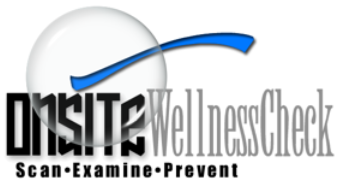Onsite Wellness Check:
Controllable Risk Factors
Physical Inactivity
- People with inactive lifestyles have increased risk.
- 30-60 minutes of physical activity on most days helps reduce the risk of coronary heart disease.
- People who smoke cigarettes have the greatest risk.
- People who smoke cigars or pipes seem to have greater risk, but their risk is not as great as cigarette smokers'.
- Exposure to other people's smoke increases the risk of cardiovascular disease even for nonsmokers.
- Quitting smoking helps reduce the risk of coronary heart disease.
- People who have too much body fat, especially around the waist, have increased risk.
- Women with waist measurements of more than 35 inches have increased risk.
- Men with waist measurements of more than 40 inches have increased risk.
- People with Body Mass Index (BMI) values of 25 or greater have increased risk.
- Losing weight helps reduce the risk of coronary heart disease.
- People who have blood pressure of 140/90 mm Hg or higher have increased risk.
- Lowering blood pressure reduces the risk of coronary heart disease.
- People with total blood cholesterol levels of 200 mg/dL or higher have increased risk.
- People with heart disease or diabetes, who have low-density lipoprotein (LDL) cholesterol levels of 100 mg/dL or higher, have increased risk.
- People with no other risk factors, who have low-density lipoprotein (LDL) levels of 160 mg/dL or higher, have increased risk.
- People with high-density lipoprotein (HDL) cholesterol levels of less than 40 mg/dL may have increased risk.
- People with triglyceride levels above 150 mm/dL may have increased risk.
- People who have type 1 or type 2 diabetes have increased risk.
Other Contributing Factors
Stress
- People who have too much stress or who have unhealthy responses to stress may be at greater risk of having coronary heart disease.
- Some women who take hormone replacement therapy for the treatment of menopause may have increased risk of blood clots, heart attack, and stroke.
- For more information, see FDA's Menopause and Hormones web page: http://www.fda.gov/womens/menopause/.
Click Here to schedule your event!
